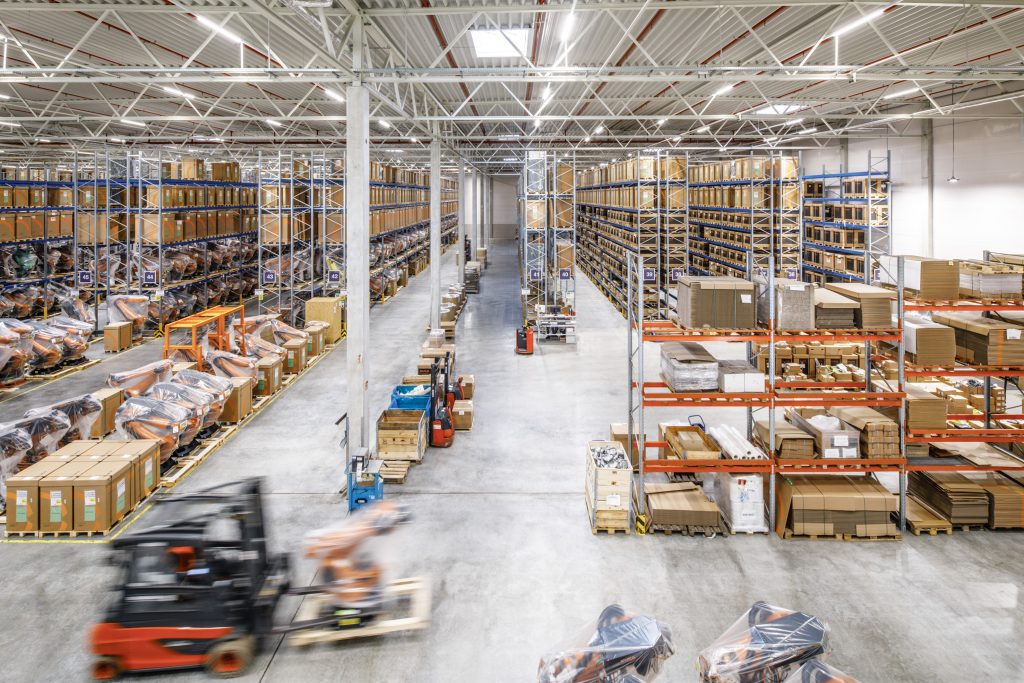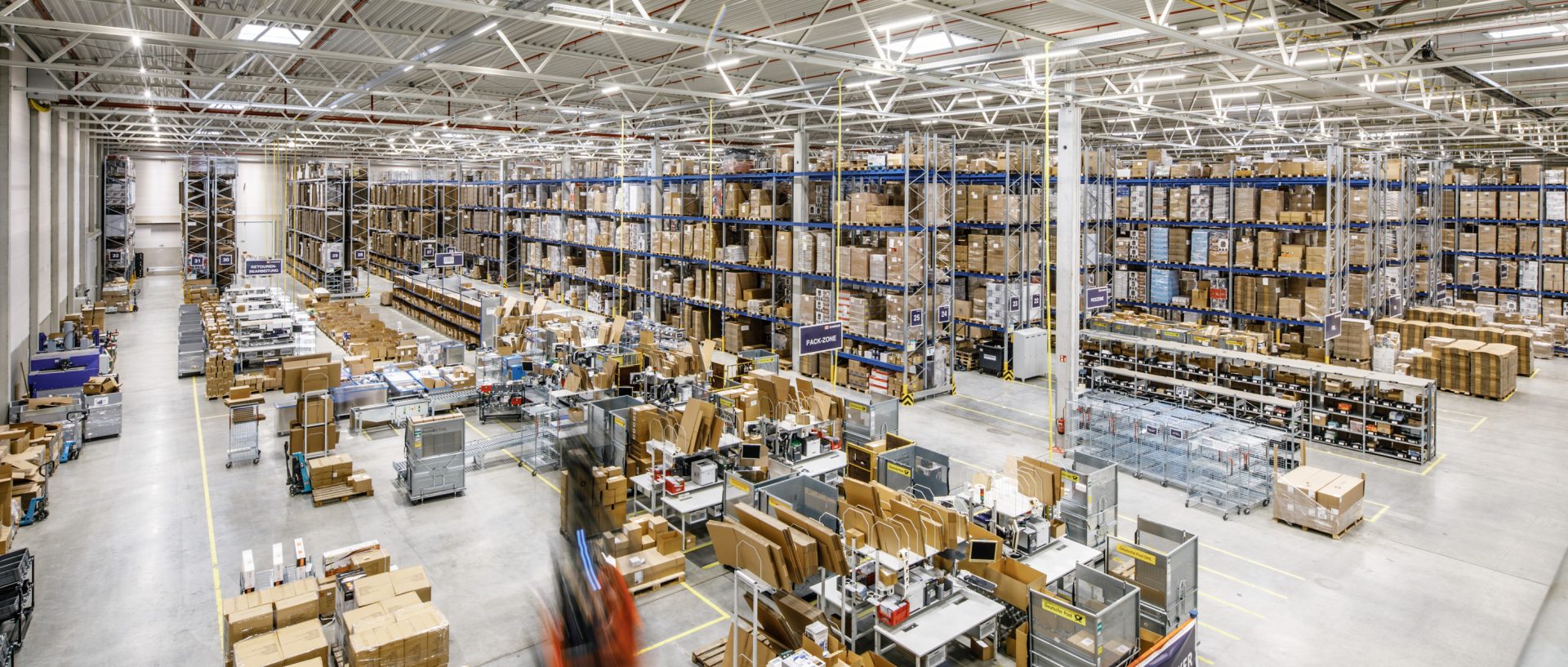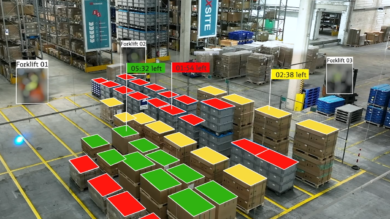E-commerce, the act of buying products online, can be traced back to the 1970s but has exploded in recent years. As online retail increases, e-commerce logistics peak management becomes increasingly important, in order to cope with customer expectations during holiday seasons and shopping events.
2020 marked a shift in buying habits and saw e-commerce change more than ever before, as the COVID-19 pandemic forced multiple retailers to temporarily or permanently close their stores and an increasing number of people turned to online purchases instead. Global e-commerce sales are expected to reach $4.2 trillion by the end of 2020 and the current market penetration of 15 percent is expected to increase to 25 percent by 2025.
The e-commerce industry has revolutionized retail, while continuously evolving to meet customer expectations. With the rise of e-commerce, online shopping events such as Singles’ Day, Black Friday and Cyber Monday – which offer consumers discounts with the aim of driving sales – have grown to reach record-breaking sales figures and dominate supply chains.
Singles’ Day: The world’s largest shopping event
Singles’ Day, originally called Bachelors’ Day, is an unofficial Chinese holiday. The event was originally intended to celebrate people who are not in relationships (the date, 11.11, resembles a bare stick and symbolizes an unmarried man who does not contribute to the family tree), but has grown to become the largest shopping event in the world – both online and offline.
This year, Alibaba – the Chinese multinational technology company specializing in e-commerce and retail – reported sales of $70.6 billion on its e-commerce platform over the entire event, which is a massive 84 percent increase from $38.4 billion last year. The event is reported to be 2.5 times larger than Black Friday and Cyber Monday combined.
Singles’ Day is unique not only for its size, but its innovative combination of e-commerce, entertainment and consumerism. Over the years, the event has given companies the opportunity to launch new products, drive brand awareness or trial inventive advertising campaigns.

Singles’ Day: Unique logistical challenges
Shopping events such as Singles’ Day present companies with unique logistical challenges, as they struggle to keep up with the spike in sales and the necessity to stock and deliver products to meet consumers’ increasing demands. There are many issues to overcome, including the temporary need to hire additional workers, alongside the intense inventory, warehousing and shipping demands. It is important to ensure flexible supply chain management, streamlined warehouse processes and maximized route efficiency, to avoid traffic jams caused by the huge number of delivery vehicles.
Global logistics provider DB Schenker regularly partners with a number of customers to provide logistics support during the shopping extravaganza of Singles’ Day. These customers rely on DB Schenker’s experience in omnichannel and e-commerce logistics peak management to ensure shipments are delivered on time – even to the remotest locations in China. In 2019, DB Schenker processed a total of 2 million orders placed within a 24-hour period, which were handled by a workforce of around 2,500 employees.
For DB Schenker, preparation begins several months beforehand, including hiring and training of staff, organizing additional space and equipment, and multiple simulations to ensure all processes will run smoothly on the big day. Big data is used to predict volume from different customers and solutions are designed based on these forecasts. In 2019, two warehouses covering an area of 23,000 square meters were operated by DB Schenker within the Shanghai metropolitan area. In addition to receiving and temporarily storing goods during the build-up to Singles’ Day, the teams were also responsible for all value-added services besides picking, sorting and dispatching, including packing and labeling.
“Over the last 3-4 years, we have seen an acceleration of technology and hardware to enable faster fulfilment operations. This has been driven in part by customer expectations and the ‘Amazon Effect.’ We can be sure that faster delivery propositions across all categories are here to stay. To satisfy this ‘need for speed’, our top priority is to evolve our networks, supply chains and fulfilment models.”
E-commerce logistics peak management in Germany
At a 78,000-square-meter Shared Logistics Center in Augsburg, Germany, DB Schenker handles logistics operations on behalf of a number of customers whose sales are characterized by seasonal peaks such as Christmas or Black Friday, among others. In order to absorb these peaks as smoothly and efficiently as possible, DB Schenker implements various measures, including early forecast planning, hiring additional staff, shift adjustments and extended Saturday operations.
One of these customers is MediaShop, an international teleshopping company now dealing in e-commerce primarily for the sale of electronic items. DB Schenker manages their newly centralized warehouse for Germany, Austria and Switzerland in Augsburg, with a total storage capacity of up to 30,000 pallets. Inbound goods from suppliers, storage, shipping, customs clearance and returns from retailers and wholesalers are handled here.
With peak shopping events predicted to continue growing in size and importance in the future, both e-commerce companies and logistics providers will need to cope with increasing demand. Careful planning and innovative solutions will become more and more important to keep up with customers’ expectations. Competition is bound to heat up and the question will be: Which providers are able to provide the best service and customer experience?
Published: December 2020











